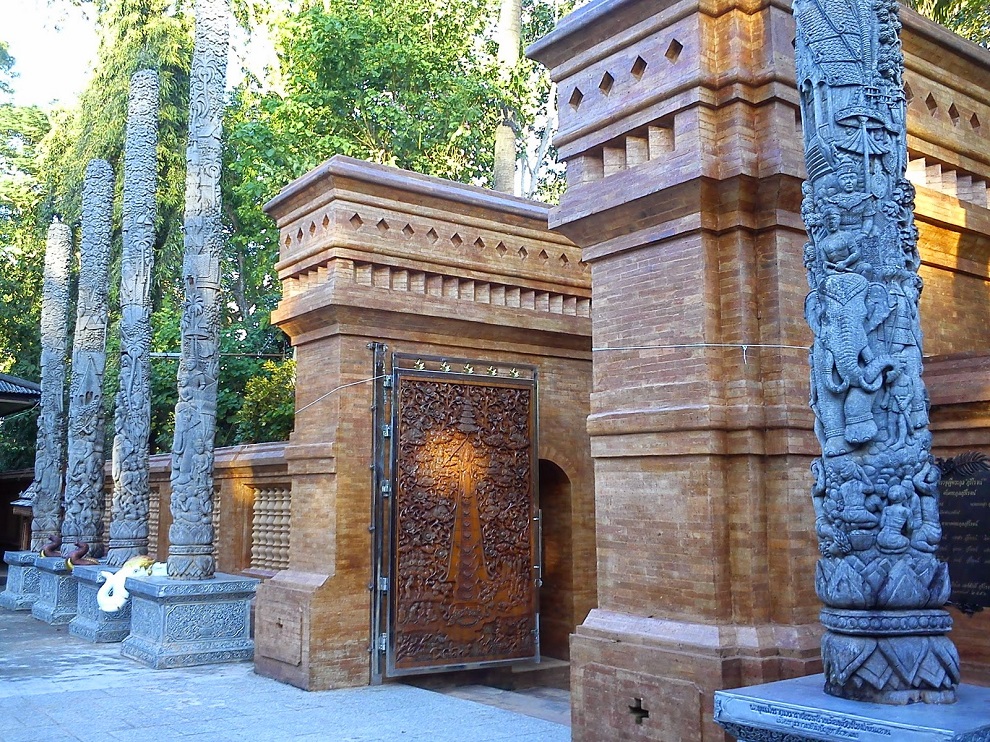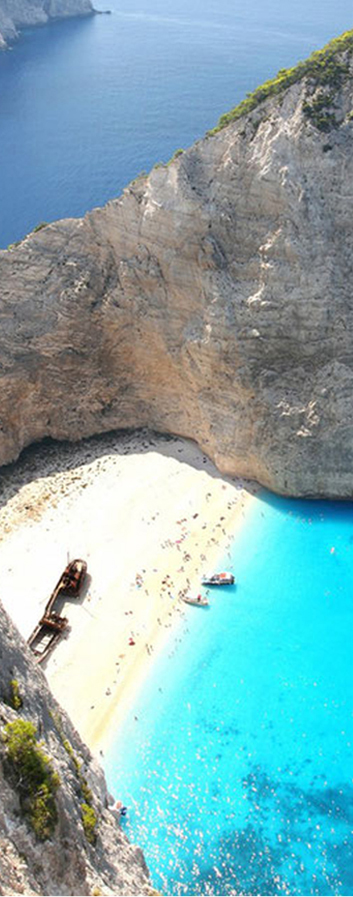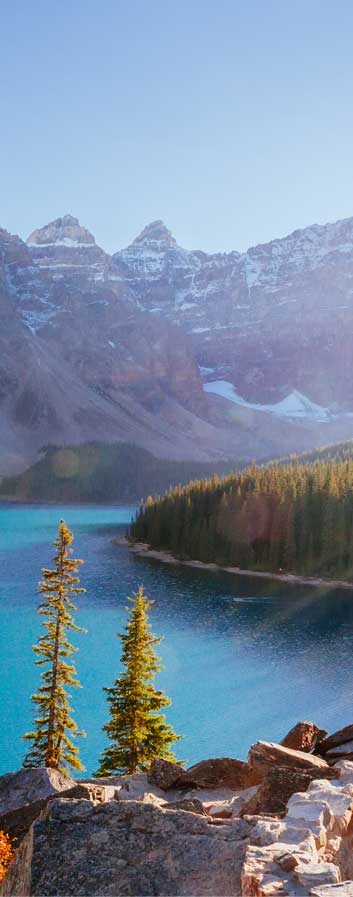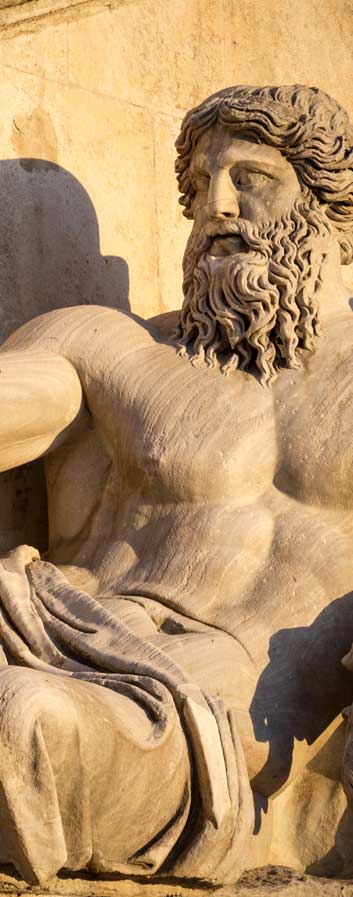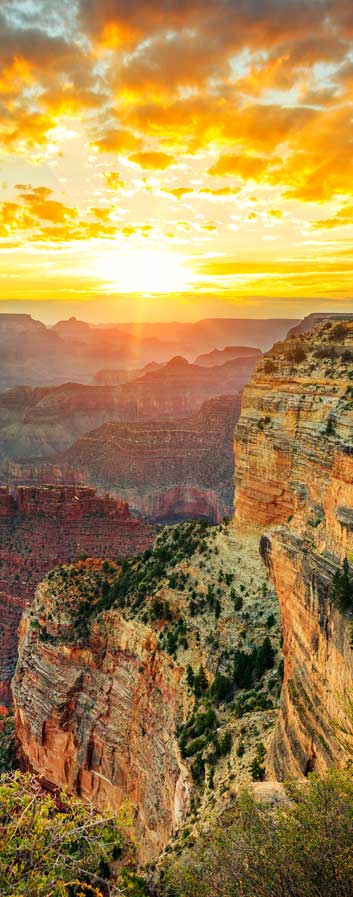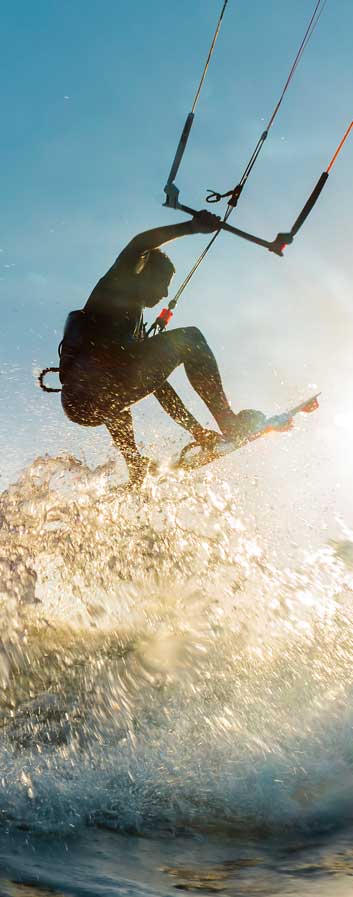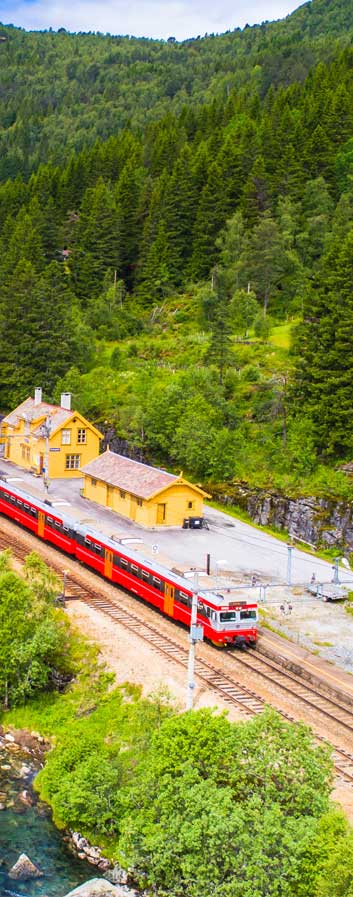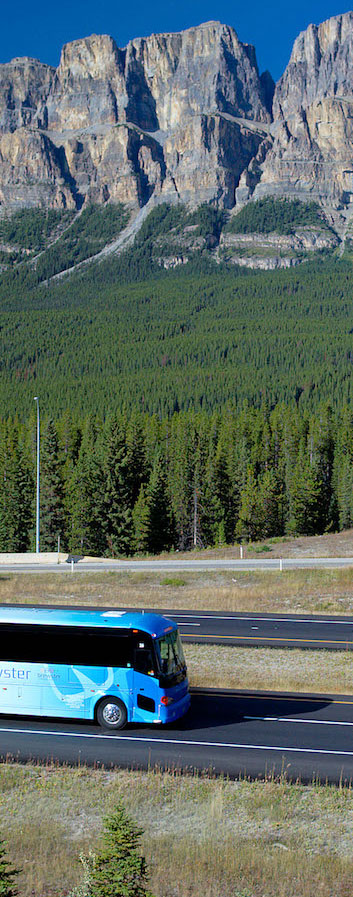Ku Phra Chao Meng Rai
On top of a small hill in Chiang Rai is the Wat Ngam Muang temple that enshrines the ashes of the city’s founder in its chedi.
Getting to the temple grounds requires a climb of a stairway flanked by Naga serpents, a mythological water creature. The serpents heads extend high over the temple grounds outer wall while the body extends all the way up along the stairs to the temple grounds.
Climbing the stairs the viharn of the Wat Ngam Muang comes in sight. The viharn’s facade and entrance door are beautifully decorated with intricate wood carvings depicting Lanna style motifs and Thewada figures (a kind of celestial beings).
Inside the viharn facing the entrance sits a large Buddha image in the subduing Mara position on a pedestal surrounded by smaller images. The large pillars are decorated with flower motifs. The stairs to the viharn’s entrance contain Nagas, whose bodies stretch up to the top of the stairs and then both ways across the balustrade of the portico.
The oldest structure of the temple is the chedi or stupa. The chedi named Ku Phra Chao Mengrai was built after the death of King Mengrai, the founder of the Lanna Kingdom and the city of Chiang Rai. The chedi was built to enshrine the ashes of the King, who died in 1317. The stone chedi is set on a square stone base and contains niches on all four sides in which Buddha images are placed.
King Mengrai founded Chiang Rai in 1262 to be the new capital of the Lanna Kingdom. It remained the capital city for 30 years until Chiang Mai was founded and made the new capital. In front of the stupa is memorial to King Mengrai; two white elephant statues are placed on either side of the memorial.
Over the centuries structures have been added to the grounds and the temple has been renovated several times, the last time in 1952.
The Wat Ngam Muang used to house one of the largest copper Buddha images in the country before it was moved to its current location. The 700 years old Phra Chao Lan Thong Buddha image is now in the Wat Phra Kaew temple in Chiang Rai.
